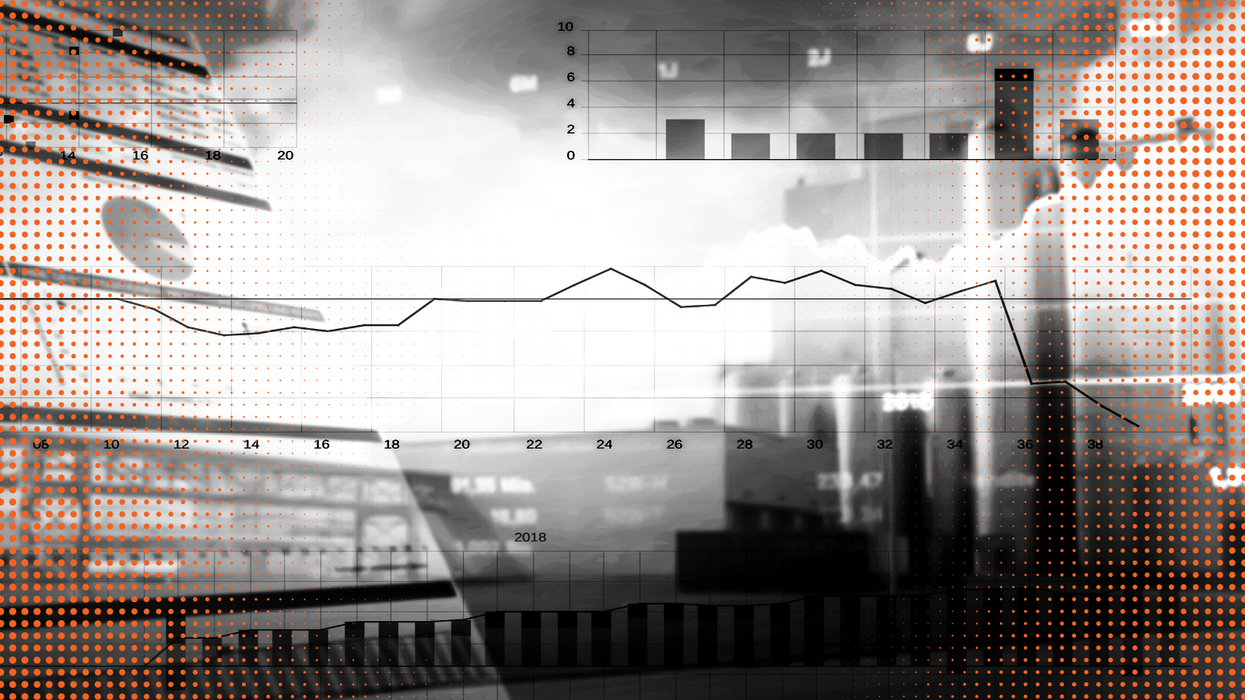Economy
14 October 2022
US retail sales were flat in September as ecommerce gained
September's year-over-year increase in retail sales was even with the latest inflation rate.

September's year-over-year increase in retail sales was even with the latest inflation rate.

US retail sales totaled $684 billion for September, according to the US Commerce Department. That total was flat with August, which in turn was revised to an increase of 0.4% over July. When compared with September 2021, sales rose 8.2% for the month.
Nonstore retailers, which is the category that includes ecommerce, outpaced sales across the economy. This category was up 11.6% year-over-year, and rose 0.5% over August. Clothing and health store sales were also up 0.5% each on a monthly basis.
However, many categories saw a decline for the month. This included furniture stores (-0.7%), electronics stores (-0.8% monthly, -8.6% year-over-year), sporting goods and hobby stores (-0.7%) and motor vehicle and auto parts stores (-0.4%).
The National Retail Federation’s calculation of core retail sales, which excludes auto dealers, gas stations and restaurants, found that overall retail sales increased 0.3% from August, and rose 7.2% year-over-year.
It's important to note that the retail sales data issued each month by the Commerce Department is not adjusted for inflation. That’s an important caveat at a time when prices continue to go up. On Thursday, the Consumer Price Index for September showed an inflation rate of 8.2% year-over-year, which is exactly in line with the increase in overall sales.

At a time when prices are going up and the Federal Reserve is hiking interest rates to cool off the economy, consumer demand is being watched for signs that shoppers are pulling back. It’s a complicated picture. Consumers have shifted to spending on services, and retailers are running discounts to move excess inventory as a result of supply chain issues. Holiday deals are starting to ramp up.
Nevertheless, price remains a key concern for consumers, even as they continue to spend.
“Consumer demand remained intact during September and continues to be a key contributor to economic activity,” NRF Chief Economist Jack Kleinhenz said, in a statement. “But sales were uneven across retail categories and inflation is the main factor that is determining how much shoppers are willing to spend. Households are tapping into savings, accessing credit and reducing their savings contributions as they meet higher prices head on. Shoppers are looking for bargains and value in the current economic environment and even more so as we head into the holiday season.”
Like retail sales in September, consumer sentiment was unchanged to start October. According to the University of Michigan Survey of Consumers’ first reading for the month, sentiment was “essentially unchanged” from September. This was despite a 23% rise in buying conditions for durable goods, which came as a result of easing supply chain conditions.
Overall, consumer sentiment is still sullen during a period when inflation remains stubborn, and there are signs that gas price increases could return. The slight improvement above June’s all-time low remains in place, but it is “tentative,” wrote Survey of Consumers Director Joanne Hsu.
The index of current economic conditions was up 9.4% month-over-month, while expectations fell 3.1%.
“Continued uncertainty over the future trajectory of prices, economies, and financial markets around the world indicate a bumpy road ahead for consumers,” Hsu wrote.
Labor disputes on the West Coast could cause further disruption heading into peak season.
When the first half of 2023 is complete, imports are expected to dip 22% below last year.
That’s according to new data from the Global Port Tracker, which is compiled monthly by the National Retail Federation and Hackett Associates.
The decline has been building over the entire year, as imports dipped in the winter. With the spring, volume started to rebound. In April, the major ports handled 1.78 million Twenty-Foot Equivalent Units. That was an increase of 9.6% from March. Still it was a decline of 21.3% year over year – reflecting the record cargo hauled in over the spike in consumer demand of 2021 and the inventory glut 2022.
In 2023, consumer spending is remaining resilient with in a strong job market, despite the collision of inflation and interest rates. The economy remains different from pre-pandemic days, but shipping volumes are beginning to once again resemble the time before COVID-19.
“Economists and shipping lines increasingly wonder why the decline in container import demand is so much at odds with continuous growth in consumer demand,” said Hackett Associates Founder Ben Hackett, in a statement. “Import container shipments have returned the pre-pandemic levels seen in 2019 and appear likely to stay there for a while.”
Retailers and logistics professionals alike are looking to the second half of the year for a potential upswing. Peak shipping season occurs in the summer, which is in preparation for peak shopping season over the holidays.
Yet disruption could occur on the West Coast if labor issues can’t be settled. This week, ports from Los Angeles to Seattle reported closures and slowdowns as ongoing union disputes boil over, CNBC reported. NRF called on the Biden administration to intervene.
“Cargo volume is lower than last year but retailers are entering the busiest shipping season of the year bringing in holiday merchandise. The last thing retailers and other shippers need is ongoing disruption at the ports,” aid NRF Vice President for Supply Chain and Customs Policy Jonathan Gold said. “If labor and management can’t reach agreement and operate smoothly and efficiently, retailers will have no choice but to continue to take their cargo to East Coast and Gulf Coast gateways. We continue to urge the administration to step in and help the parties reach an agreement and end the disruptions so operations can return to normal. We’ve had enough unavoidable supply chain issues the past two years. This is not the time for one that can be avoided.”